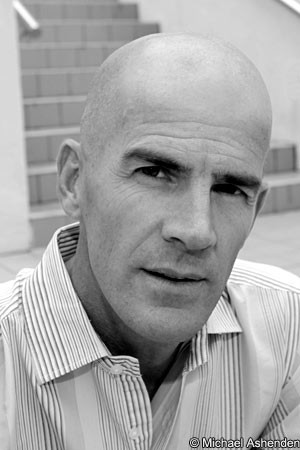Anti-doping scientist warns that more needs to be done
 Previously part of the UCI’s biological passport expert panel, Michael Ashenden has criticised the governing body for what he said is a loss of momentum of late.
Previously part of the UCI’s biological passport expert panel, Michael Ashenden has criticised the governing body for what he said is a loss of momentum of late.
The Australian anti-doping researcher credits the UCI with some of the developments it introduced, but warns that he considers the fight against drug use in the sport is not being pushed as hard as it needs to be.
“A few years ago, I’d have ranked the UCI as world leaders but today I think they’ve fallen back into the pack,” he told Telegraph Sport. “They do have the Biological passport which only a handful of other sports have adopted, so that’s to their credit. But on the other side of the ledger, they don’t have even one single investigator in place to receive and investigate allegations of doping. Not even so much as a hotline as far as I’m aware. Even Major League Baseball outranks the UCI on that index.
“I consider their attempts to derail the USADA investigation as a terrible blight on their record. They had a golden period circa 2008 but I’m afraid things seem to have slid since then.”
The biological passport was introduced after scandals such as the 2006 Operacion Puerto, Floyd Landis’ Tour positive the same year and the Michael Rasmussen affair in 2007. Anne Gripper was also working with the UCI at that time, and provided a transparency to the dope control system by interacting with media and providing an insight into the measures that were being taken.
However 2009 saw a shift in that setup, with Gripper telling journalists that she could no longer speak without getting a green light from the UCI. She eventually left the federation and her replacement, Francesca Rossi, seldom speaks to the media.
At the same time, the number of biological passport tests has fallen in the past couple of seasons and there have been few new cases opened.
Ashenden believes that some momentum has been lost, and suggests that the UCI’s assertion that the sport is much cleaner is not helpful in keeping the pressure on.
“The reality is that one third of podium finishers since 2008 have been tainted by doping in one form or another. I just don’t get how anyone can see that as anything but a terrible indictment,” he said.
“I can’t think of any other federation who would be claiming their sport was in good shape if one third of their recent champions were tainted by doping.”
Saying that he hopes Armstrong is never seen ‘within 100 miles of any start line again,’ he stated that he would not be opposed to Floyd Landis and Tyler Hamilton returning to the sport in some capacity, as they had provided crucial evidence.
For Ashenden, the most important consideration is to establish the truth about the doping problem. He believes that a truth and reconciliation commission might help in determining what precisely went on, and in ejecting those who continue to exploit doping .
“Certainly it is a defining moment for cycling. Whether it marks the start of a truly new era or just another false dawn like 1999 remains to be seen. My optimism tracks the likelihood of a truth and reconciliation process,” he explained.
“Without that process, I just don’t see how we’re going to be able to smoke out all the sociopaths who still infest the sport and prey on the riders.
“If anyone were to argue that the five accomplices that USADA named were the only bad apples who’ve carried their activities on from the so-called ‘dark era of doping’, I’d suggest they’re either cycling publicists or they need their head examined.”